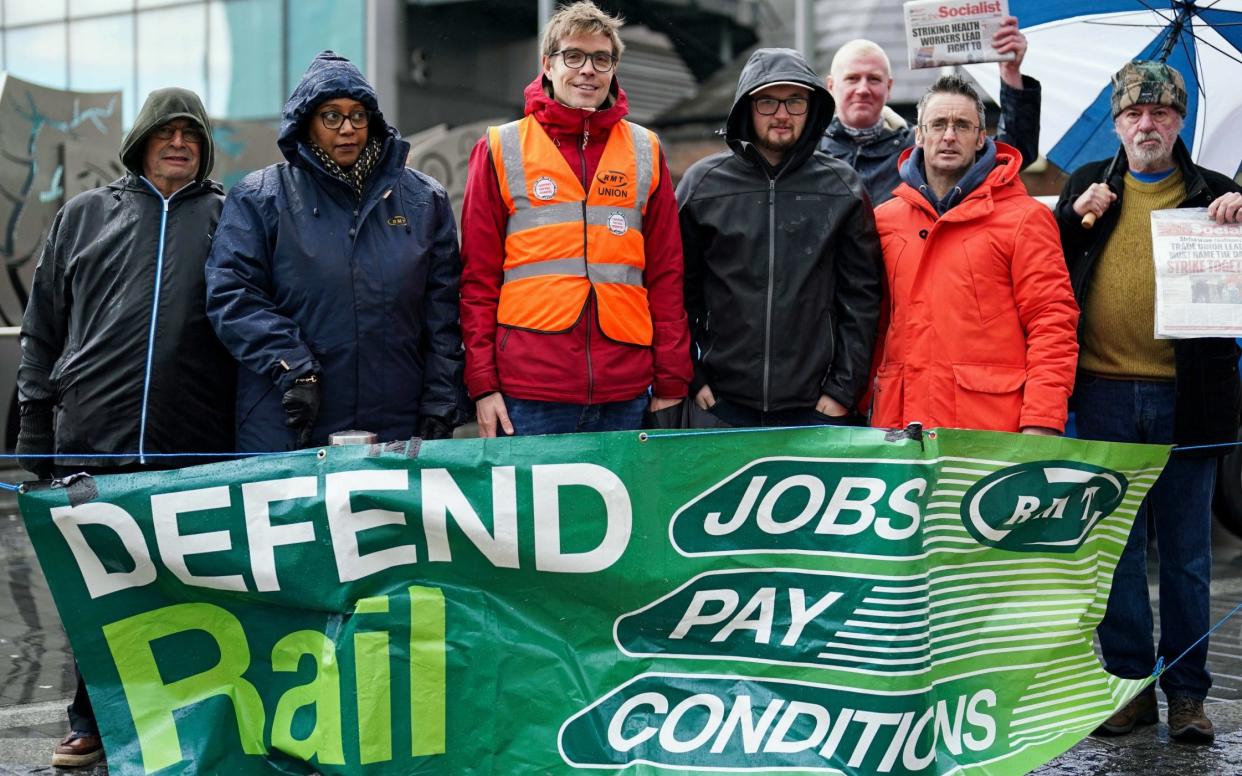Train strikes today: Rail services affected in the February walkouts

Train drivers will take part in a fresh round of strikes on Wednesday, heaping further misery onto weary rail commuters.
Drivers from dedicated union Aslef and wider rail union RMT will walk out on Feb 1 and Feb 3 as a long-running industrial dispute lingers on.
The walkouts are the latest this year after rail workers launched industrial action during the first week of January - delaying the return to the office for many until Jan 9. The RMT staged two 48-hour walkouts sandwiching a single day of strike action by Aslef. It meant rail services were brought to a standstill from Tuesday Jan 3 to Saturday Jan 7.
When are the next train strikes?
Both Aslef and the RMT have announced strikes on Feb 1 and Feb 3.
Train drivers will be joined by thousands of workers from other unions on Wednesday February 1, in the biggest day of industrial action in over a decade, according to the TUC.
Will services on the following days be affected?
Yes. This is because strike days often leave locomotives and their carriages stranded at the wrong depots and will need to be moved the following morning before being ready to operate passenger services.
Which train companies are affected by strikes?
The companies affected include Avanti West Coast; Chiltern Railways; CrossCountry; East Midlands Railway; Great Western Railway; Greater Anglia; GTR Great Northern Thameslink; London North Eastern Railway; Northern Trains; Southeastern; Southern/Gatwick Express; South Western Railway (depot drivers only); SWR Island Line; TransPennine Express; and West Midlands Trains.
How many trains will run?
When train drivers go on strike, typically between 10pc and 20pc of a normal timetable can only be operated.
However, commuters will be left stranded by 15 train operators which will run zero trains both tomorrow and Friday.
The companies running no trains are: Avanti West Coast; Chiltern Railways; CrossCountry; East Midlands Railway; Gatwick Express; Great Northern; Heathrow Express; Island Line; London Northwestern Railway; Northern; Southeastern; Southern; Thameslink; TransPennine Express; and West Midlands Railway.
The following train companies are running an amended service on the strike days: Greater Anglia & Stansted Express; Great Western Railway; and LNER.
Who is to blame for the dispute?
Unsurprisingly, both sides - unions on one; Network Rail, train operators and the Government on the other - are blaming each other.
Rail unions say that their members have been denied pay rises for the last three years. Combined with soaring inflation, it means many workers are effectively taking a real-terms pay cut - i.e. because prices are rising so quickly, static wages are effectively worth less.
However, union chiefs conveniently ignore that none of the rail sector was put on furlough during the pandemic - this despite significantly fewer services being run. Had they been moved on the Government's furlough initiative, rail staff would have suffered an effective 20pc pay cut under the terms of the Coronavirus Job Retention Scheme.
Neither has the Government covered itself in glory, however.
Network Rail, which owns tracks, stations and signals, and train operators have been effectively nationalised. This means any pay rise above the public sector norm of 2pc has to be signed off by Westminster - and politicians want the companies to justify any increases by identifying cost savings to cushion the impact on the Exchequer.
Although the RMT has rebuffed a series of pay offers from Network Rail, train operators were not given licence to offer any more than 2pc until last month - and only then with a government condition that all on-board guards would be cut.
Such a condition is a "red line" for both the RMT and Aslef, who claim it was inserted to doom the pay deal to failure.
So when will this end?
It could be that the February strikes do not take place at all - although the RMT said its action on Feb 1 was linked to a wider "TUC day of action, where several unions are coordinating their strikes during the cost of living crisis".
Nevertheless, if ministers backtrack on demands to cut guards, and sweeten a pay deal by a percentage point or so, we could soon see the RMT putting it to a ballot of their members with a recommendation to support.
Likewise, if a similar deal was offered to Aslef then the same could happen - although its negotiations continue to lag those conducted by the RMT.
It's a similar situation on Network Rail, where slightly sweetened terms could be enough to break the deadlock.
Mick Lynch from the RMT is under growing pressure from his members to come to an agreement. They have lost 18 days worth of pay since the start of the spat - as well as missing out on pay rises of around 9pc over two years.
For Mick Whelan at Aslef, it is a different sort of pressure. The drivers union is seen as less militant - but will still stick by his demands for wage increases near or even at inflation rates.


